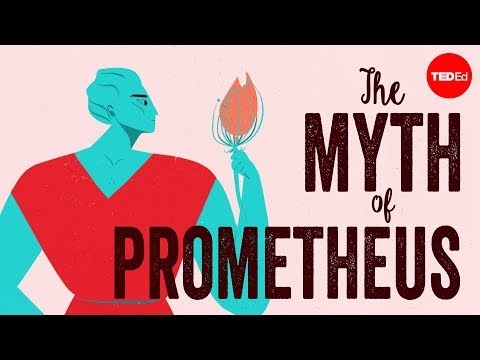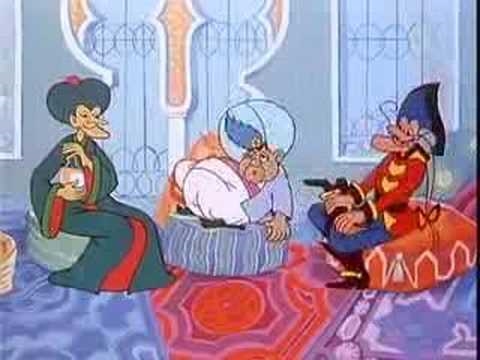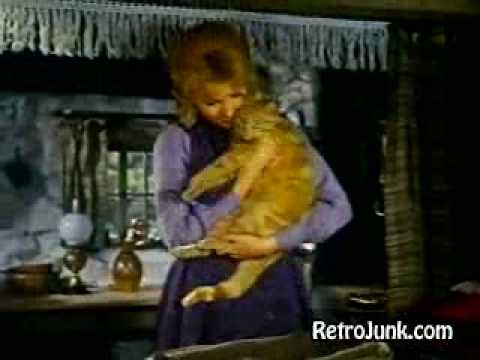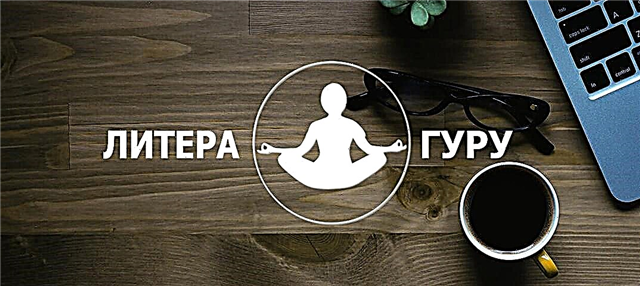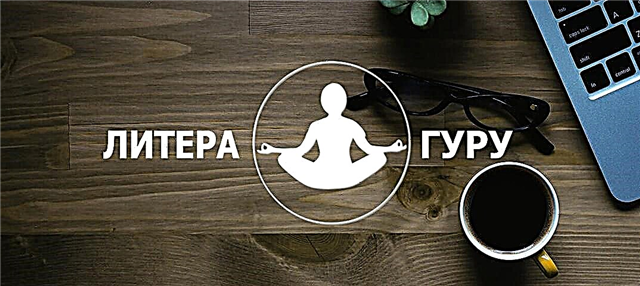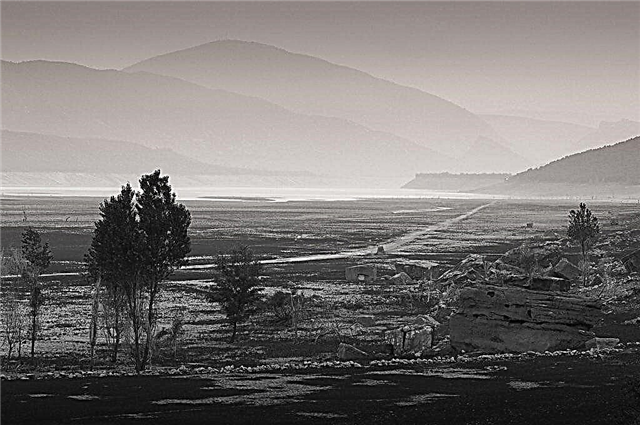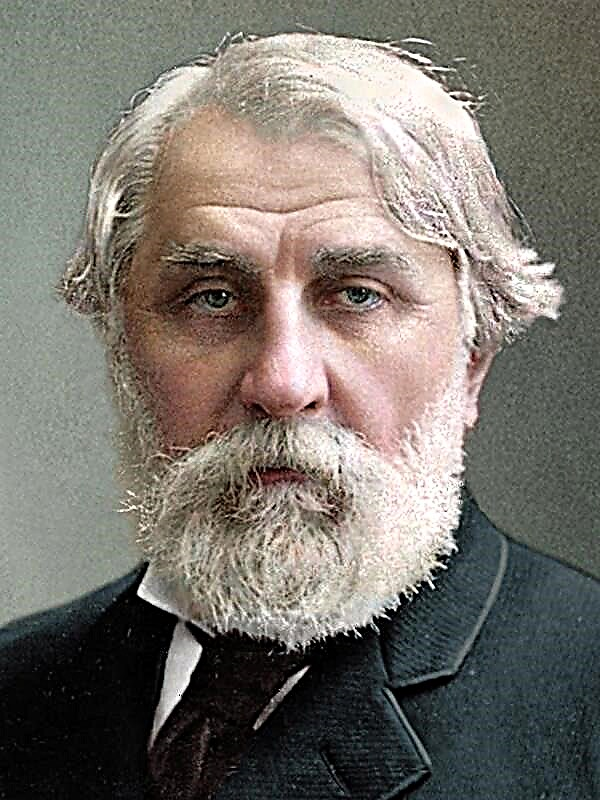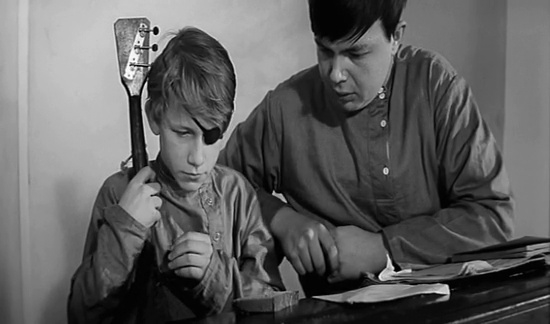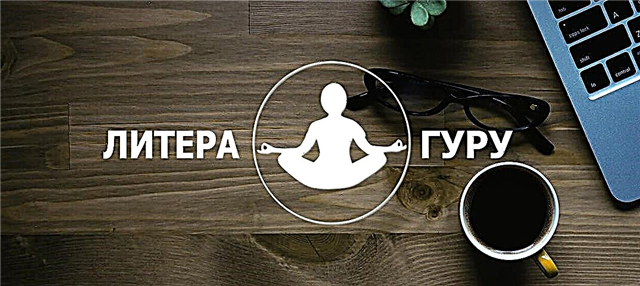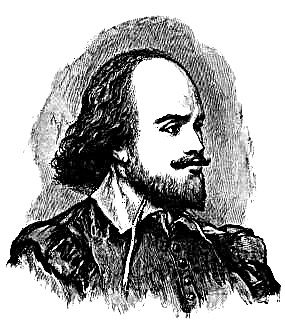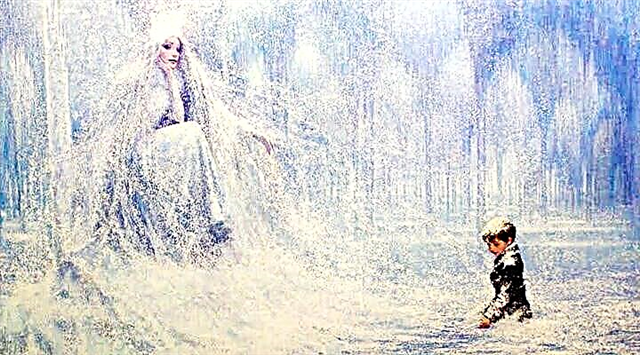According to the writer, the novel is “something more than a literary work. This is a living creature, a tale of the spiritual world of one woman, ”covering forty years of her life - from careless youth to courageous death.
From the first pages of the novel we see “a strong, fresh girl, poured with the juices of life”, strong, blond, with a stubborn convex forehead, who has not yet experienced anything in life and is constantly immersed in her dreams. The position in society and the condition of her father allow Annette Riviere to live a free, secure life. She studies at the Sorbonne, is smart, independent, and self-confident.
Annette learns from the papers of her recently deceased father that she has a half-sister, Sylvia, the illegitimate daughter of Raul Riviera and flower girls Dolphins. She finds Sylvia and sincerely becomes attached to her. Sylvia, the grisette, a typical child of a Parisian worker, does not fully meet the high moral standards of her sister. She is not averse to tricking Annette, and when she notices that her sister likes the young Italian aristocrat, she beats her from her without any embarrassment. And yet, common blood unites these two, not so similar women. "They were like two hemispheres of one soul." In any trials prepared for them by fate, they do not lose sight of each other and are always ready to help one another.
Annette makes an offer to the young lawyer Roger Brisso. His family is ready to join the lands of the wealthy heiress to their lands. Roger is sure that "the true purpose of a woman is at the hearth, her vocation is motherhood." But Anneta, "who herself has her own world, who herself is the whole world," does not want to become the shadow of her husband and live only by his interests. She asks Roger for freedom for herself and her soul, but runs into a wall of misunderstanding. Annette cannot reconcile with the mediocrity of her chosen one. True in everything, she finds the strength in herself to terminate the engagement. But she is sorry for the rejected lover. Unable to control herself, she surrenders to him.
Annette's soul was healed of passion, but a new life is ripening under her heart - she is pregnant. The sister invites her to tell everything to the former groom and oblige him to marry her, in order to avoid shame and give the child a father. But Anneta is not afraid of human talk and is ready to become a father and mother for the baby. Throughout her pregnancy, she is immersed in dreams and dreams of a sweet life together with her child.
Annette has a son. Reality looks much harsher than her dreams. Secular society, friends, girlfriends, who had admired it so much before, turned their backs on it. Unexpectedly for Annette herself, it hurts her. She is not going to put up with the “rejected position”. Then little Mark gets sick. Before the child recovered, a new misfortune befell Annette: she was devastated, the house in Paris and the estate in Burgundy were put under the hammer. Mother and son are forced to move to a small apartment in the house where Sylvia lives. For a minuscule fee, Annette gives private lessons, from morning to evening, running around the city from end to end, while the baby is under the supervision of her sister and her seamstresses. However, such a life is to Annette's liking. She seemed to have awakened from a dream, "she began to find pleasure in overcoming difficulties, was ready for everything, dared and believed in herself."
Annette meets former university friend Julien Davie. The awkward, timid Julien reaches for a strong, strong-willed Annette. She, in turn, responds to the undivided devotion of this sweet man. A young woman does not conceal anything from her past life and talks about her illegitimate child. Julien recognizes Annette's directness and nobility, but Catholic and bourgeois prejudices are strong in his soul. Annette does not blame him for this, but decisively breaks with him.
Annette meets a young doctor Philippe Villard. At first glance, Villars recognizes a soul mate in Annette. Her extraordinary mind and wild temperament delight him. Between them flashes of passion, they become lovers. Annette wants to be needed by her beloved, to become his wife and girlfriend, equal to him in everything. But Philip in his immense egoism sees in Annette only his thing, his slave. He is not against linking their lives, but at the moment he is passionate about the controversy surrounding his article on birth control, and is in no hurry to make a decision. Trying to free herself from the "humiliating slavery that love condemned her to," Annette flees from Paris and takes refuge with her sister. Having returned, she refuses to meet with Philip. Three months later, the tormented Annette is healed of a fever. "At the end of the night of torment, she gave birth to a new soul."
The first world war begins. Annette, the "obsessed player," greets her: "War, peace - all this is life, all this is her game." She started, she breathed easily. But the enthusiasm of the first months of the war passes, and Annette's eyes open. She is “on no one’s side,” all those suffering, both her own and others, are worthy of her maternal pity.
In search of work, Annette was forced to give her son to the Lyceum, and herself to go to the province, where she finds a teacher's place in college. Here she meets Germaine Chavannes, a young bourgeois who returned from the war poisoned by gases. Germain has a friend, the German artist Franz, who is now in a prisoner of war camp. Before his death, Germain wants to receive at least news from a friend. Moved by the tender friendship of young people, Annette organizes a correspondence between them, then arranges for Franz to escape from the camp and forwards him to Switzerland, where the dying Germain awaits him. Unbeknownst to herself, Annette becomes attached to a limp, selfish Franz. Franz, shocked by the death of a friend, becomes attached to Annette and cannot literally take a step without her. Having made a painful choice for herself, Annette refuses personal happiness in favor of her son and leaves for Paris.
In Paris, she learns that the man who helped her arrange the escape of Franz was arrested and facing the death penalty. Annette is ready to admit everything and take the blame on herself to save him. Friends miraculously manage to avert trouble from her, presenting her act as love folly.
For everyone, this adventure of Annette looks just like that, but not for her son. Mark, experiencing a period of youthful development, feels alone, abandoned by his mother, but secretly proud of her, her courage. For a long time he avoided Annette, was ashamed of her violent manifestations of feelings, her frankness and directness. Now that he has realized what a noble and pure heart his mother has, he longs to speak heart to heart with her. Annette gives Mark the freedom of choice, revealing to the young man that his father is a famous lawyer, brilliant speaker and politician Roger Brisso. But Mark, having been to a rally where his father speaks, is disappointed: the orator’s words about “immortal principles, crusades, a sacrificial altar” are saturated with falsehood. Mark is ashamed of his father and the crowd applauding him. Returning home, he tells the Questionnaire: "You are my father and mother."
Annette in horror expects her dear boy’s turn to go to the front. Mark, like his mother, sees the abomination of war and despises the lying patriots and their hypocritical heroism. He is ready to say no to the war and refuse to go to the front. “Unfortunate! <...> They promised us liberation, but imposed a vile war that threw us into the abyss of suffering and death, disgusting and useless! ” Shouts Mark. Annette is not able to deceive his trust, she supports him.
The First World War is over. Mark never got to the front. He studies at the Sorbonne. He is already ashamed to take money and food from his mother, he wants to earn money. Together with friends, the young man is trying to understand what is happening in post-war Europe, and to choose his position in relation to what is happening.
Annette is already over forty, she has reached the age when she enjoys every day she has lived: “The world is what it is. And I, too, the way I am. May he tolerate me! I put up with him. ” Looking with a smile at how her boy is rushing around, she is sure that, despite the bumps and blows streaming down at him from all sides, he “will never lay down his arms”, will not slide down, will not change the principles of good and justice that were laid down she is in him, his mother.
Annette is trying to find at least some work, not disdaining the heaviest. The case brings her to the newspaper, owned by Timon. This aggressive, rude, grasping man, whom the entire editorial board trembles before, notices Annette and makes him his personal secretary. He likes this smart, calm, quick-witted woman of “good Gallic sourdough”. He trusts her, shares his secrets, consults with her. Annette does not approve of him, but accepts, "as they take a sight." She believes that "as long as a person remains internally truthful and free, not everything is lost for him," even if he is mired in fraud and crime. Thanks to Timon, Annette penetrates the backstage of politics and becomes convinced that "sovereigns, parliaments, ministers ... are nothing more than puppets with phonograph records: they exist for the gallery." Behind them are others. "The main ringleaders are Cases and Money." And Timon swims in this sea, like a shark with indestructible energy. Annette directs this energy in the right direction. Its all. young Soviet Russia is more attracted, and with the filing of Annet, Timon opposes the economic blockade of the USSR. The former partners of Timon, sensing where the wind is blowing from, try to remove first Annette, and then Timon himself. The last they succeed - Timon dies.
Mark is seriously ill. His health was undermined by overwork, lack of sleep and malnutrition. Throwing everything, Annette rescues her son. Her. helps a neighbor Mark, a Russian girl Asya. Through the efforts of both women, Mark is recovering. Between Mark and Asya, love breaks out. Annette accepts Asya as her own daughter. Asya reveals her soul to her: in her homeland she had a chance to survive the death of a child, the horrors of a civil war, hunger, deprivation. Under the wise maternal look of Annette, the girl seems to thaw, blooms.
Asya and Mark have a son. However, their feeling gives a crack: an active, freedom-loving Asya can not sit in four walls and breaks into freedom. She is increasingly interested in the changes taking place. in her homeland, in Russia. But Mark rushes about in search of work, in search of his goal in life. There is a gap between the spouses, and Asya leaves the house. Annette does not blame the daughter-in-law, does not interrupt her relationship. She is sorry for both children. She takes her grandson to her house and hopes that someday his prodigal parents will accidentally or intentionally collide at her house and make peace. She sees that love is warming in young, warm hearts under a layer of ash.
Annette was right: Asya and Mark are together again. After so many trials that have fallen to their lot, they feel not only spouses, but also like-minded people. Mark makes a firm decision "to devote himself to a great cause and prepare for great social battles." They organize people in support of the Soviet Union, against incipient fascism, open a small printing house, where they print translations of Marx, Lenin, appeals and pamphlets written by Mark. Anneta is not trying to pacify the energetic leaps of her two foals. " With its help, the book publishing house Mark turns into one of the centers of anti-fascist emigrants.
Mark's activities are becoming too visible, and he is in danger. Annette decides to go to rest with her family in Switzerland. There, mother and son, more than ever, feel a kinship of souls, complete unity, they are infinitely happy and enjoy each other's company. Leaving little Vanya in the care of friends, Annette, Mark and Asya go to Italy. However, there Mark is already known as a fighter for social justice and an anti-fascist, and the police are watching them. Italian adherents of the Duce also do not leave Mark unattended. In Florence, on the day of his departure to his homeland, Mark dies, saving a teenage boy from the furious fascists. Annette's pain is immeasurable, but she has the strength and courage to take the body of her son and her sister-in-law distraught with grief to France.
After the death of her son Annette, it seems that "she has nothing left." Her beloved son was her “second self,” she put all the best into him. Repeating to himself: “My beloved son has died, but he is not dead. He is always with me ... ”, Annette is gradually awakening to life. She decides to continue the work of her son and thus preserve the living memory of Mark. "It's not me, it's him coming ... In my body, he, dead, will go further than he would come alive." Annette speaks at anti-fascist meetings, works in various public organizations of international assistance. And soon in the eyes of the people, mother and son Riviere merge together.
However, Annette’s strengths are not the same, the “weary heart” begins to give up. Doctors forbid her to engage in vigorous activity. Asya gets married and leaves for America, leaving Vanya in the care of her grandmother. Annette devotes herself to the house and her “chicks”: a seriously ill sister, grandson, young Georges, daughter of her old friend Julien Davi, young man Silvio, whose life Mark saved. Annette knows what dangers and sufferings await those whom she loves, but she is calm: “If we know that the matter is fair, that it should be so, we therefore know that it will be so.”
Flying over Rome and scattering anti-fascist leaflets, Silvio dies. Annette understands that all her children are “destined to accept death in a flame with enthusiasm, <...> That flame that illuminated it without burning, destroyed the walls and spread into the souls of others with a fire. <...> The charmed soul and the brood of its chicks, like a phoenix, were born for a bonfire. So glory to the fire, if from their ashes, as from the ashes of the phoenix, a new, more worthy humanity will be reborn! ” Rejoicing that she joins the voluntary sacrifice of her children, Annette welcomes death. “The cycle of the Enchanted Soul ends. She was the link of a ladder thrown through the void, on one of the turns. And when the foot rests mercilessly on it, the step does not let go, through the body, curved, like a semicircle of onions, the Master passes through the abyss. All the pain of her life was the angle of deviation on the path that Fate goes forward. ”

